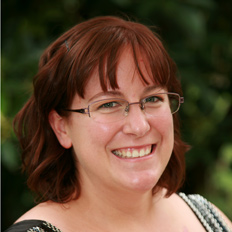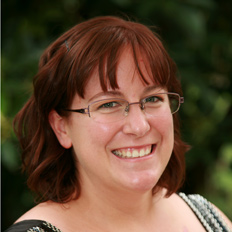
Why I wanted to become a nurse
 It is a treat to have a guest post from Laurie Bickhoff, who was chosen as one of five Emerging Nurse Leaders in 2012. In this post, Laurie answers the question “why did you want to be a nurse?”
It is a treat to have a guest post from Laurie Bickhoff, who was chosen as one of five Emerging Nurse Leaders in 2012. In this post, Laurie answers the question “why did you want to be a nurse?”
“One of the most common questions I am asked is why did you want to be a nurse? For me, it was a decision I made later in life, just before my 30th birthday. I had grown increasingly unhappy in my current job. I didn’t feel like I was being challenged or learning anything new. I felt like I was in a rut.
Around this time, my mum was diagnosed with cancer, had surgery and needed chemotherapy. A nurse was with her every step of the way. It was the nurses who were there for comfort and support, who explained what was happening and cared for our entire family, not just our mum.
I saw nurses in every aspect of healthcare, from admissions to theatres to management. I saw nurses specialising in any number of areas, including oncology, gastroenterology, cardiology, neurology and more. I knew, as a nurse, there would always be more to learn and if I ever felt I wasn’t learning, then there would be another area I could move to and start a new challenge. Nursing wasn’t just one career path, it opened up a multitude of paths and it was just up to me which one I chose. Even better, I could change direction whenever I wanted.
With these points in mind, I made the leap back into study, and it was, quite possibly, the best decision of my life so far. I knew I was making a real difference in my patients’ lives, right from my very first clinical placement. The course work was difficult, but I was motivated to study as hard as I could, knowing that the more I knew the better a nurse I would be. With support from my family and friends, I graduated from the University of Newcastle in December 2012.
Once upon a time, nursing was seen as the safe career choice, with graduates being virtually guaranteed a position upon completion of their degree. However, this is no longer the case. New graduate nursing positions are now fiercely contested. Less than 10% of 2012 nursing graduates from Queensland were able to secure a graduate position. Other states saw between 40 to 60% of new graduates left unemployed.
NSW offered the most positions, but with the shortages in other states, and national nursing registration, it wasn’t only graduates from NSW competing for these spots. Graduates from all around Australia applied and the competition intensified. You needed to be well prepared for your interview to ensure you had a chance at securing a position.
Preparing for new graduate interviews really does start from your first nursing subject. The interviews are often scenario based, meaning a clinical scenario is proposed and you need to state what care you will provide and how it will be prioritised. If you don’t know your information, you won’t be able to give the appropriate, comprehensive answer. So take every opportunity you can to learn.
It’s a great idea to practice interview questions. A quick google search will display numerous examples of nursing interview questions and it is beneficial to practice these with a group of friends. While you have google open, research the health district you want to work in. Know what their core values are and ensure these are included in your interview answers.
All clinical placements during your degree should be seen as a job interview. Introduce yourself to the NUMs and ward educators, show up early, work hard, be part of the team. A student who is eager to learn, asks questions and gets involved will leave a lasting impression. Any of the nurses you come in contact with on placement may just end up on your interview panel for a new graduate position. If you are unsuccessful in your new graduate applications, the connections you have made with NUMs during clinical placement may be vital to help you secure employment outside these programs.
I was fortunate to be offered a new graduate position within the Greater Newcastle Acute Hospital Network which is part of the Hunter New England Local Health District. Starting work as a registered nurse was both exciting and daunting. For the first week, I kept looking over my shoulder, expecting someone to be there watching what I was doing. It felt weird to suddenly be on my own and to have my own patients. I soon realised though, I wasn’t alone – there were many people happy to help and support me.
My ward was welcoming and overwhelmingly friendly. There was none of the ‘eat their young’ atmosphere that is often talked about in nursing. Questions were welcomed and I was given two mentors who were available for more in-depth lessons and debriefing sessions. I felt truly supported and part of the team.
My experience might not be the norm, but for those who didn’t have as positive a start to their career as an RN, I would say – ask for help. No one expects you to be an expert from day one, they know you are just finding your feet and it will take time to learn your way of doing things. Be open to feedback, take other nurses’ advice on board and realise they are trying to help you be the best nurse you can be.
Nursing is a wonderful and rewarding career, but it can be hard, emotionally and physically. Shift work can be tough and working a seven day roster can play havoc on your social life. Your first month of full-time work will be exhausting, but seeing the impact you have on your patients makes it worthwhile.
I am passionate about nursing and think it has many amazing opportunities. If you are searching for a career where you can help people and make a real a difference, nursing might just be for you.”
You might also be interested in our other posts and resources:
- Nursing career summary including the best and worst of nursing
- What to do if you didn’t get into a grad nursing program
- ANMF National Graduate Roundtable looking to secure jobs for grads (December 2014)
- Thousands of 2014 nursing graduates predicted to miss out on jobs

One reply to “Why I wanted to become a nurse”
Very well written, and very representative of you. When you first came to the US, you talked about wanting to be an attorney, advocating for children. You have taken that same fierce compassion and put it to good use here. No one I know would be better at not only the job of nursing itself, but also at assuring the profession stays pure and true. We have talked about how easy it is for new nurses in particular to get caught up in social pressure and to make poor decisions due to their lack of maturity. We have also spoken of mature nurses who don’t take the time to attend the little details. I am confident that you will inspire those around you to be their best rather than go through the motions on autopilot.